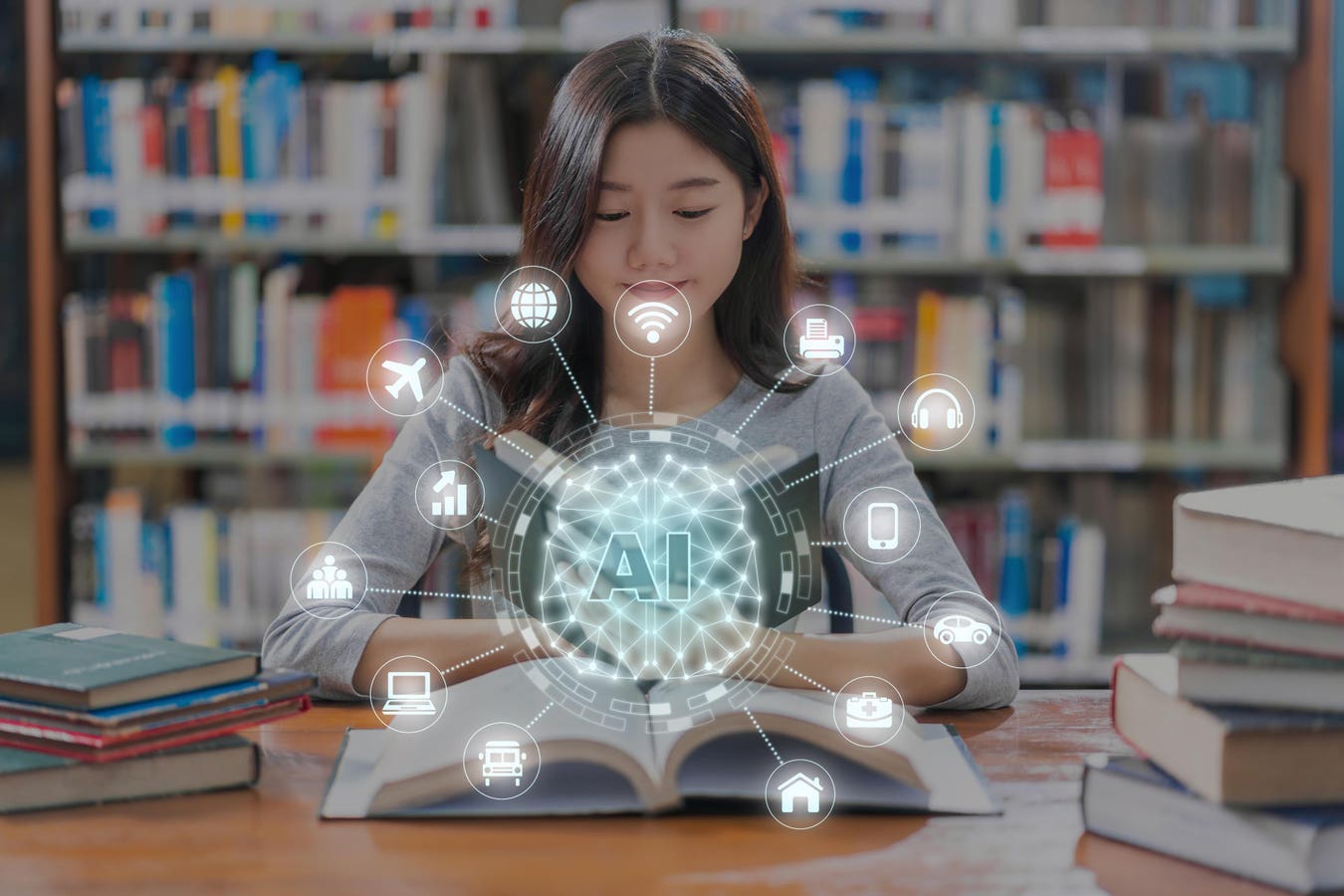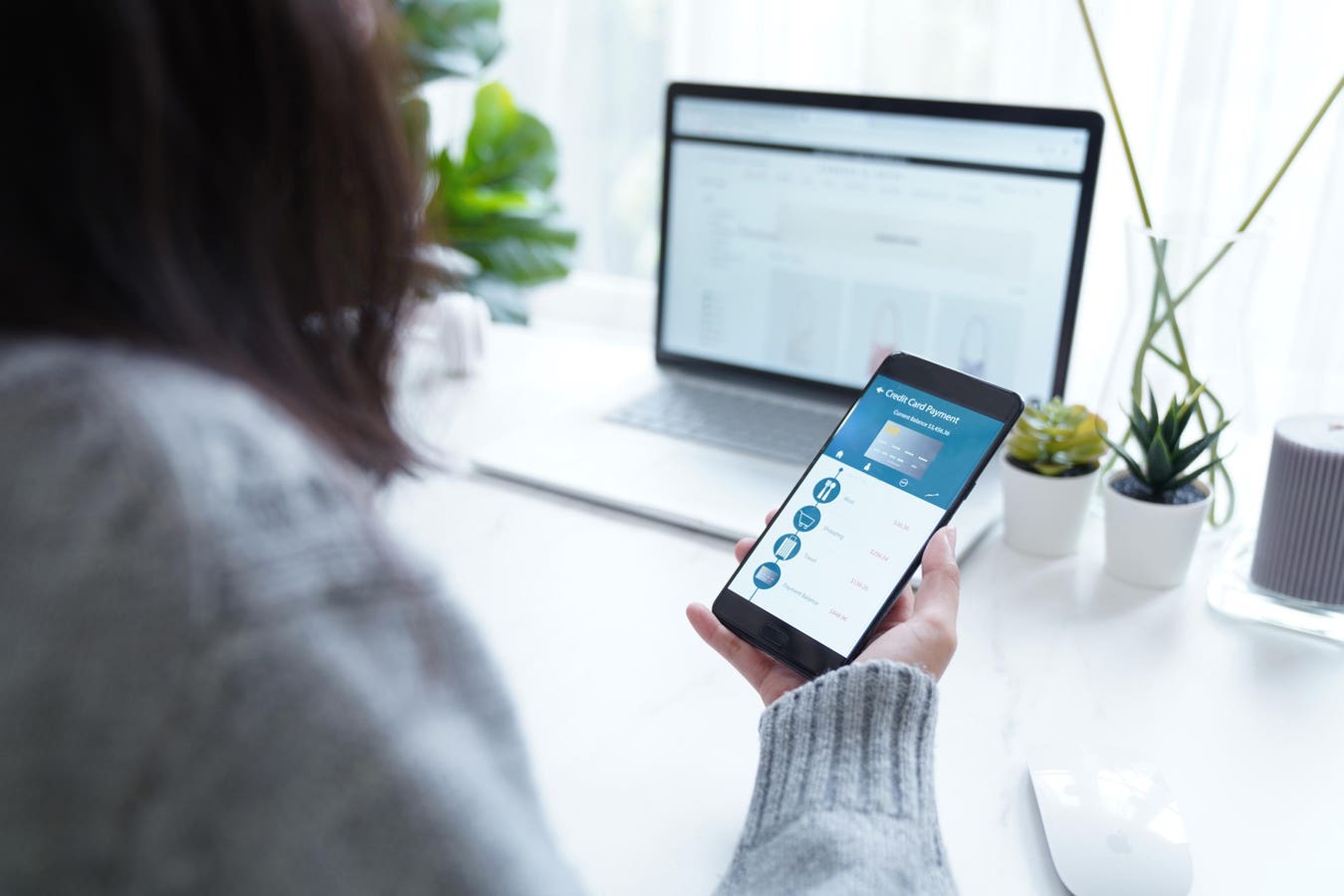I
Artificial intelligence with a young student
In June of 2025, MIT released the results from a study showing significant differences in the brain functioning between ChatGPT users, participants who used search engines, and those who only used their own creative skills to write essays. According to this study, EEG measurements across the brain showed that over four months, the ChatGPT users displayed the lowest brain activity and performed worse than their counterparts at all neural, linguistic, and behavioral levels. The report on Media.MIT.edu elaborated that the some of the significant variables were reduced neural connectivity and memory recall.
Even though these results are described as not being peer reviewed and included a small sample size, the potential implications of this study are significant. Last month, Time.com reported that these findings elevated concerns that society’s reliance on AI assistants might sacrifice the learning process and long-term brain development among young students. Though the personal implications of AI assistants will likely depend on the users, studies suggest that counseling centers should assess for the possible impact of ChatGPT and AI assistants on the mental health of students. Specific domains to consider include motivation, resiliency, and relationships.
The Possible Impact of ChatGPT and AI Assistants On Motivation
In the MIT study, ChatGPT users were described as getting lazier with each subsequent essay, resorting to copying-and-pasting, struggling to quote their own work, and even reported less ownership of the essays. Thus, it’s possible that using AI assistants can have a negative impact on the motivation and academic engagement of some students. Motivation and academic engagement are important factors in college mental health, because bored and intrinsically unmotivated students usually struggle with other concerns. For example, a 2019 report by Columbia University in the City of New York highlighted how boredom is associated with issues such as risky behavior, anxiety and depression.
Furthermore, high motivation and academic engagement are often indicators of thriving. According to a 2023 study in the journal of Behavioral Sciences, motivated students show more interest in their classes, have more fun, and the impact of motivation on academic performance is more consistent than the impact of self-esteem. Thus, it’s note-worthy that a 2024 study in the journal of Technology in Science described ChatGPT as increasing the productivity and freedom of students, which could strengthen academic engagement. In summary, when students present to counselors with low motivation for school, AI assistants could be a contributing factor to this symptom. However, introducing AI assistants to other unmotivated students could be an innovative way to address these concerns.
The Possible Impact of ChatGPT and AI Assistants On Resiliency
In the MIT study, when asked to re-write a previous essay without ChatGPT, participants not only remembered little of their own essays, but also displayed under-engagement in networks of alpha and beta brain waves. According to a 2025 report by the Orange County Neurofeedback Center, there’s a well-established connection between brain waves and mental health. As described in a 2019 report from Thomas Jefferson University, alpha waves are the brain’s relaxation waves, and can be a natural anti-depressant by releasing serotonin. This report described beta waves as vital in problem solving. Thus, it’s possible that high uses of AI Assistants could result in some students experiencing more stress and being less creative while addressing academic challenges.
Helping students cope with academic challenges is an important function of many mental health professionals. As such, it’s important to assess if some students might be less resilient because of a dependence on AI assistants. However, AI assistants also make data more accessible, which could help many students overcome and reduce academic challenges. In 2023, the American Psychological Association released a report on how ChatGPT can be used as a learning tool to promotive critical thinking.
The Possible Impact of ChatGPT And AI Assistants On Relationships
Social support is another important factor in college mental health. A 2024 study in the Journal of Mental Health found that high social support was a protective factor against psychological distress, depression, anxiety, and suicide. As such, assessing the impact of AI use on social support among students is warranted. For example, another 2025 report on Media.MIT.edu highlighted a study examining how users seek AI chatbots for emotional support and companionship. The findings suggested an initial benefit of mitigating loneliness, but that these advantages diminished with high use. Furthermore, high daily use was associated with greater loneliness, dependence, and lower socialization. However, a 2025 study on OpenAl.com argued that only a small number of users have emotional conversations with ChatGPT.
There are also reported concerns about the content of AI chatbots. Another 2025 report on Times.com highlighted alarming conversations discovered by a psychiatrist posing as a young person while using AI assistants. Examples of responses including the AI bot encouraging the psychiatrist to get rid of parents and to join the bot in eternity. However, this report also argued that Al chatbots have the potential to be effective extenders of therapy if designed appropriate and supervised by a qualified professional.
As stated, the impact of AI assistants is likely dependent on the users, but since AI assistants are becoming normative, it’s time for counseling centers to assess for maladaptive uses of AI, while also promoting the possible benefits.









